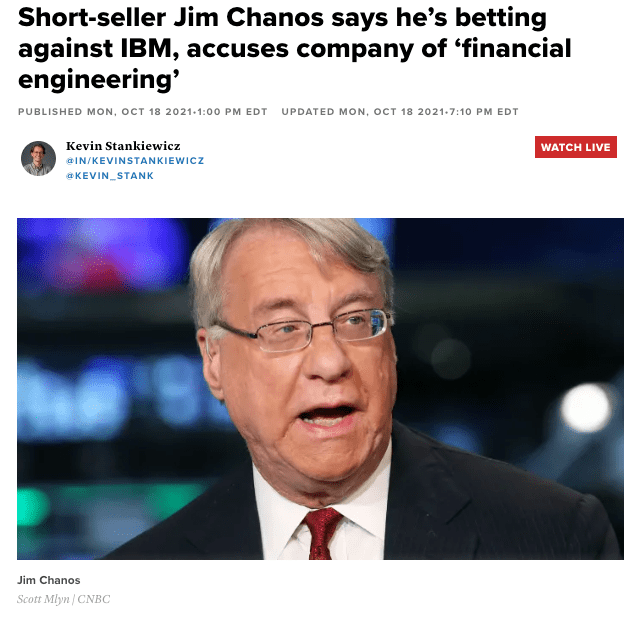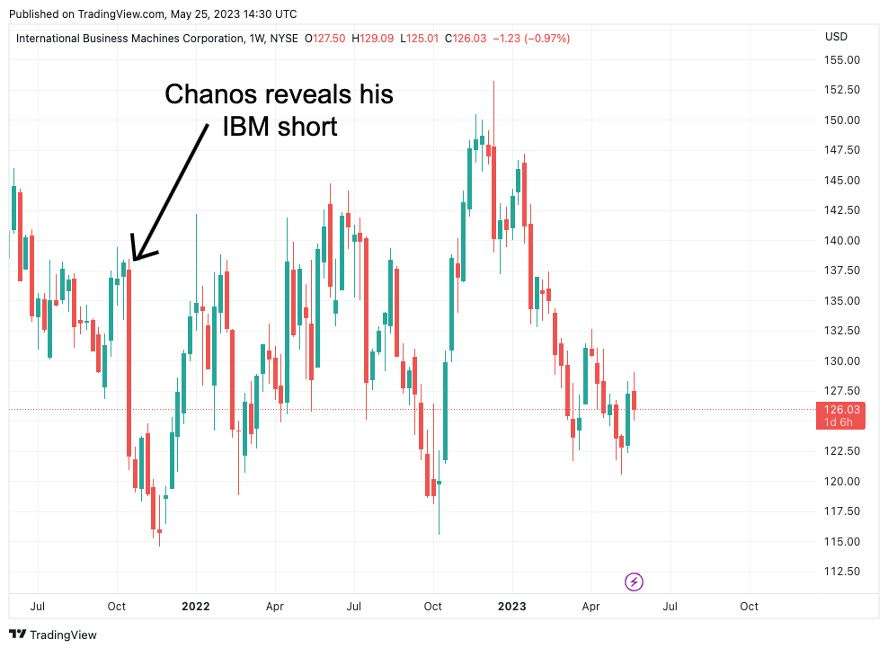Failing Upwards
[2 minute read] A short story of how a finance tycoon failed spectacularly, to his benefit.
Sometimes life throws curveballs at you and I had to take a break from writing about financial markets for the past few months.
Now I’m back, and I’m more determined than ever to make FinanceTLDR a top-tier finance newsletter.
For the inaugural newsletter issue post-hiatus, here’s a short but amusing story of how a high-profile investor was publicly wrong on a major short position, yet somehow failed upwards and outperformed the broader market.
In October 2021, famed short-seller Jim Chanos went on CNBC to reveal a major IBM short position. Chanos came out guns blazing against the company. The way he described it, you’d think IBM was Public Enemy #1.
Long story short, Chanos thinks IBM’s revenue (which has been falling) will continue to fall precipitously as its legacy revenue streams fade away while its more agile and innovative cloud competitors like AWS and Google continue to rapidly pull ahead.
To prop up the ailing company, Chanos accused IBM management of engaging in “accounting high jinks”. He thinks IBM is a scam “hiding in plain sight”.
So how did this short position work out for Chanos?
Despite Chanos’s confident public declaration that IBM was a fraudulent company, its stock price hasn’t done much of anything in the past year and a half. This makes his short position, by the books, a bad one. While IBM’s stock price swung up and down without actually going anywhere, Chanos has to pay interest on the borrowed IBM shares he has shorted.
Practically, even though Chanos has so far been proven wrong on his IBM thesis, the short position has surprisingly worked out fantastically for him relative to the rest of the market.
When Chanos revealed his IBM short position in October 2021, SPY was at $450. At its lowest point since then, SPY fell by almost 25% to just under $350. Today, SPY is 8% below its October 2021 levels.
By being wrong on IBM as a fraudulent company, Chanos outperformed the broader market and successfully failed upwards.
This is an intriguing example of the hazardous randomness of investing. You can be dead wrong but make money. On the flip side, you can be right and still end up financially ruined. At risk of being too cliche, this amusing Chanos story serves as a reminder to approach investing with a cautious yet adaptive mindset, and always be open to the twists and turns that incessantly shape the financial landscape.



